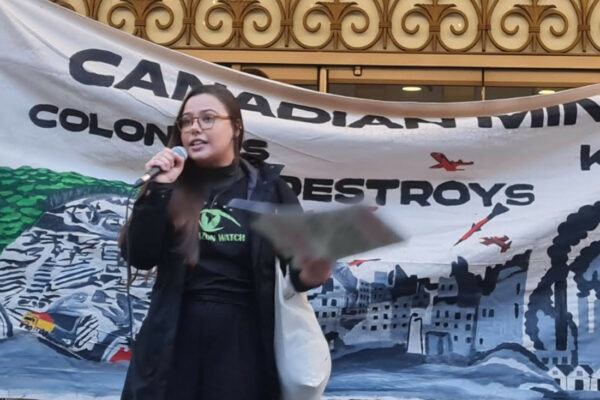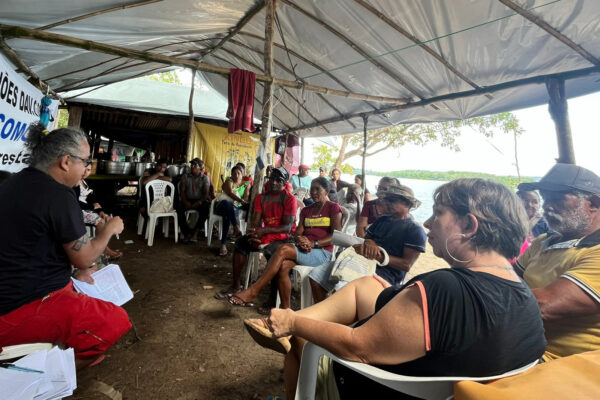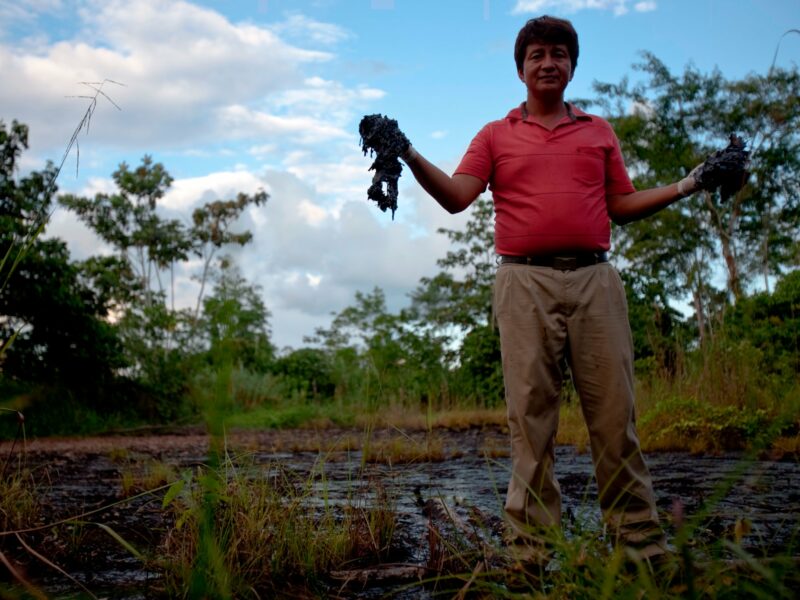San Ramon – Back home in the Oriente region of the Ecuadorean Amazon rain forest, members of the Cofan tribe walk for as long as 45 minutes to retrieve potable water.
Here in San Ramon, it takes only a few seconds to turn on the tap.
Such differences in culture are astounding to a group of native Ecuadoreans who are in town to educate residents about the effects ChevronTexaco’s oil drilling has had on their land.
Nearly two weeks ago, the 12-person delegation arrived in California after a multi-leg journey by canoe, foot, airplane, bus and minivan. Some have never been outside of the Oriente; some were on their second visit to the United States after a December trip to San Ramon regarding ChevronTexaco.
On this particular sunny Wednesday afternoon, Toribio Aguinda, 45, is relaxing on a bench in the doorway of a hotel room at San Ramon’s Homestead Village. A delegate of the National Cofan Indigenous Federation of Ecuador, from the town of Dureno, Aguinda seems at ease in a blue tunic, gray slacks and brown buckled shoes.
“Recently, slowly but surely, we’ve been learning how to eat cow,” he says through a Spanish interpreter, who notes
that the group has been eating mostly Mexican food and vegetables while here. “Before this, we mostly ate meat from the jungle.”
Such meat consisted of monkey, guanta, a type of guinea pig, and guatusa, also known as an “Indian rabbit.” Many Amazonians hunted their own food, but because of what they say was the devastation of their land, live game is harder to come by.
“Before (the drilling), there were lots of animals,” Aguinda says. “Now we have to hike for days to find animals.”
Colonization also encroached on the Cofan’s hunting grounds, forcing many natives to find jobs planting corn or coffee to earn enough money to buy pasta and rice from the next town.
“Only occasionally can we hunt and get meat,” Aguinda says, adding that jobs in the Oriente don’t pay much. Women, too, spend days making crafts such as necklaces, which end up selling for very little at local markets.
This is Aguinda’s second trip to the Valley, making him somewhat of a mentor to 60-year-old Luciano Lucitante Quenama, also from the Cofan tribe, who sits quietly next to Aguinda wearing a black tunic, blue jeans, Reebok socks and a pair of gray New Balance tennis shoes.
Quenama speaks only Cofan, a language that sounds part Native American, part Asian and part Spanish. He spends a moment reflecting on the luxuries Americans take for granted every day.
“I never imagined a place like this,” he says to Aguinda, who translates to Spanish for the interpreter. “I never thought I would be here. I came from very far away. It’s very difficult to come here and be here. To compare this to where I live would be impossible.”
Cars are a source of fascination for Quenama, Aguinda says. There are none in the Oriente.
“What an amount of cars,” Quenama said when he first arrived in the Bay Area. “Here, there’s sidewalks, but no one walks. … Here, each individual person has a car.”
Aguina chimes in on the subject.
“It’s upsetting to see that these cars need oil,” he says. “For us, that oil came from our land. Now, we have nothing. This country is very developed. People live well here, and we are living as if we are garbage.”
In the Amazon, natives travel by canoe or foot – often without shoes, unless they’re going to the city – in extremely hot and humid weather.
The climate makes for a sometimes uncomfortable walk to find a spring yielding decent water that, after being boiled, can be consumed. Each community has its own spring, Aguinda says, but unless one wants to wait in line starting at 5 a.m., it’s wisest to quest for a less popular water source.
That turns running water into a point of curiosity. The concept of electricity, too, is difficult to grasp, as there are no lights or telephones in the Oriente. Instead of going on the Internet, the Amazonians play music, talk, and engage in games of soccer and volleyball.
“It’s good to live this way, I guess, if you get used to it,” Aguina says of American life. “Everything’s really different here.”
The group will return to the Amazon on Friday.













